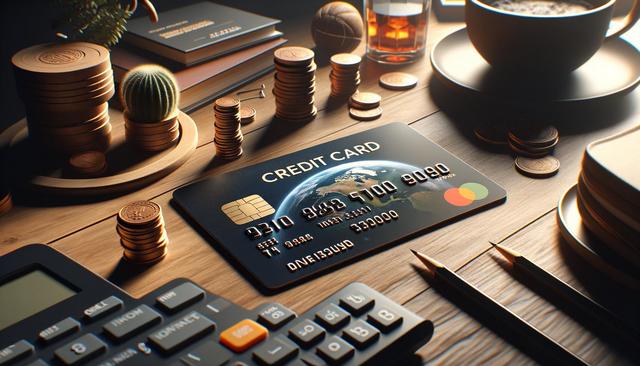The Advantages of Using Credit Cards
Credit cards offer a flexible and convenient way to manage everyday purchases, build credit history, and access financial tools that can support long-term financial goals. One of the primary benefits is the ability to build a positive credit profile, which can lead to improved loan terms, lower insurance premiums, and better approval odds for future financial products. Additionally, credit cards are widely accepted and can be safer than carrying cash, especially when traveling or shopping online.
Many credit cards also come with added features such as:
- Fraud protection and zero-liability policies
- Rewards programs for travel, dining, or cash back
- Extended warranties and purchase protection
- Introductory offers like 0% APR or bonus points
These advantages make credit cards not only a spending tool but also a way to maximize value from everyday transactions. When used responsibly, they can contribute to a strong financial foundation.
Understanding Different Types of Credit Cards
Before applying, it’s important to understand the different types of credit cards available, as each is designed to suit specific financial needs. Some cards are geared towards frequent travelers, while others are built for individuals focused on rebuilding or establishing credit. Choosing the right card depends on your financial goals and spending habits.
Common types of credit cards include:
- Rewards credit cards – Offer points or cash back for purchases
- Travel credit cards – Provide travel-related perks like airline miles or hotel discounts
- Secured credit cards – Require a security deposit and are ideal for credit-building
- Low-interest or balance transfer cards – Help manage existing debt with lower rates
Those seeking an Instant Approval Credit Card may find it useful to focus on cards that offer quick response times, though approval still depends on creditworthiness and other eligibility criteria.
How to Apply for a Credit Card
The application process for a credit card is typically straightforward, but being prepared can increase the chances of approval. Most online applications request personal information, employment details, and financial data such as income and housing costs. Understanding the card’s terms and conditions before applying is essential to avoid unexpected fees or limitations.
Here are steps to consider before applying:
- Check your credit score and review your credit report
- Compare multiple credit card offers to find the one that fits your needs
- Read the fine print for interest rates, annual fees, and rewards structures
- Ensure all information provided is accurate and complete
For applicants looking for an Instant Approval Credit Card, having a stable income and a solid credit history can improve the likelihood of immediate confirmation. However, some issuers may require additional verification even after instant approval is granted.
Options for Those with Less-Than-Perfect Credit
Individuals who need to Apply for Credit Cards with bad Credit still have viable options. Secured credit cards, for example, are designed specifically for those rebuilding their credit. These cards require a cash deposit, which typically serves as the credit limit. Over time, responsible use and on-time payments can help improve credit scores, leading to eligibility for unsecured cards in the future.
Other options include:
- Retail credit cards – Easier to qualify for but often come with higher interest rates
- Credit builder cards – Tailored to help users demonstrate financial responsibility
- Co-signed credit cards – Require a co-signer with good credit to guarantee repayment
When exploring how to Apply for Credit Cards with bad Credit, it’s important to avoid cards with excessively high fees or misleading terms. Reading reviews and comparing multiple products can help in making an informed decision that supports long-term credit recovery.
Responsible Use and Long-Term Credit Health
Getting approved for a credit card is only the beginning. Maintaining healthy financial habits is essential for building and preserving a strong credit profile. Key practices include paying the full balance on time each month, keeping credit utilization low, and monitoring statements for unauthorized charges.
To make the most of your credit card:
- Set up automatic payments to avoid missed due dates
- Use budgeting tools to track spending and stay within limits
- Regularly review your credit report to ensure accuracy
Establishing a pattern of responsible credit usage can lead to improved credit scores, better financial opportunities, and access to higher credit limits over time. Whether you’re pursuing an Instant Approval Credit Card or need to Apply for Credit Cards with bad Credit, consistency and financial awareness are the keys to success.
Conclusion: Making Informed Credit Card Choices
Credit cards can be powerful tools for managing finances, building credit, and accessing useful perks. However, understanding the different types of cards, knowing how to apply effectively, and maintaining responsible usage are all critical to maximizing their benefits. Whether you’re exploring options for an Instant Approval Credit Card or looking to Apply for Credit Cards with bad Credit, being informed and intentional in your approach can lead to improved financial stability and opportunities. Take the time to assess your needs, research offers thoroughly, and prioritize responsible financial behavior to make your credit card work for you.
